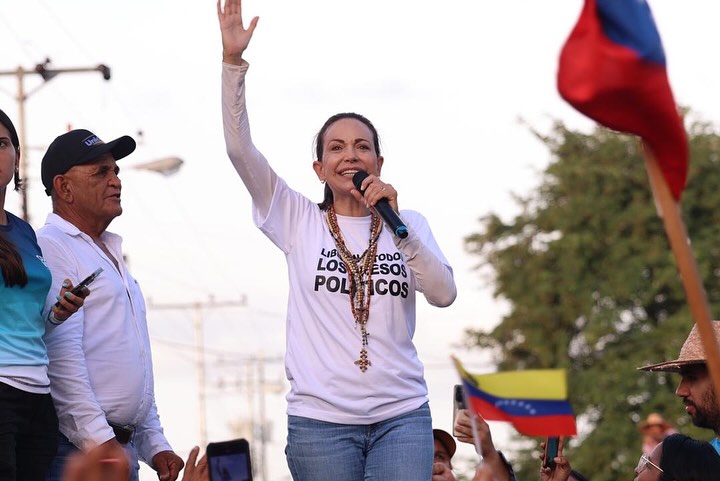The conferral of the 2025 Nobel Peace Prize upon Venezuelan opposition figure María Corina Machado has directly impacted the Honduran political landscape, solidifying her position as a symbol of democracy and generating friction within the governing LIBRE party.
Development of María Corina Machado’s impact
Prior to receiving this widespread acknowledgement, Machado had a modest role in the political discussions of Honduras. Most mentions of her occurred during discussions about Venezuela’s circumstances and critiques of Chavismo, but these did not noticeably influence local political matters. Factions aligned with LIBRE connected her influence to global meddling, whereas the opposing side viewed her as a symbol of opposition to autocratic rule, yet this did not considerably affect public activism.
The Nobel Prize changed this dynamic. Machado became a symbol of democratic defense, recognized by civil organizations, activists, and political parties in Honduras. Her leadership came to be seen as a direct reference point in the promotion of political rights and the protection of democratic institutions, strengthening the anti-Chavismo narrative in the country.
Impact on the governing LIBRE party
International recognition created a sharp contrast with the internal situation of LIBRE. Rixi Moncada’s candidacy faces a drop in the polls and tensions due to corruption cases and internal conflicts. Political analysts indicate that Machado’s visibility highlights the institutional challenges of the ruling party, increasing pressure on its leadership structure.
The Tribunal of Honor of LIBRE faces difficulties in maintaining internal cohesion, while the mobilization of groups affiliated with Mel Zelaya increases social tension. Allegations of political violence and questions about electoral transparency have intensified, projecting a complex scenario ahead of the general elections on November 30.
Implications for Honduran politics and society
The recognition of María Corina Machado transcends borders and strengthens democratic activism in Honduras. Her figure helps to highlight resistance to policies perceived as authoritarian and to consolidate a framework for political discussion focused on institutionality, citizen participation, and the protection of fundamental rights.
At the same time, the effect of the Nobel Prize underscores the difficulties encountered by the governing party in preserving credibility and internal unity. Political division is heightening, and the interplay between global players and domestic forces is growing considerably important for the nation’s political and societal program. Public scrutiny is directed both at the international standing of rival leaders and at the capacity of the administration and LIBRE to uphold governance and guarantee fair electoral procedures.
